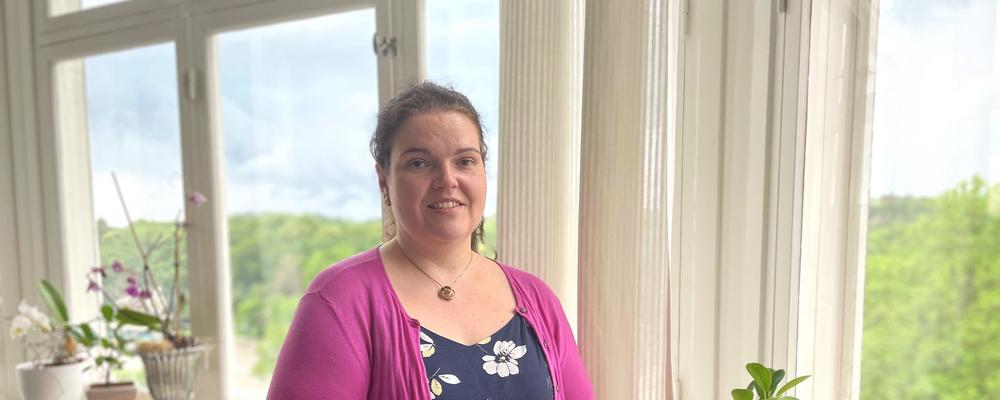Veronica Almstedt's interest in wound care began somewhat unexpectedly in 2008 when she was a newly graduated nurse. "It was actually an involuntary interest," she explains. "I noticed that the same dressing materials were being used regardless of the wound's cause, diagnosis, or who the patient was and what other illnesses they had."
After further training to become a district nurse, including a course in wound care, Veronica realized that there was a great need for specialized knowledge in chronic and slow healing wounds. "It wasn't that I was initially passionate about wounds. Rather, I saw a weakness in healthcare," she explains. This lack of knowledge is something she has worked hard to address.
"Snack with wounds"
Veronica's then-manager gave her the in-depth assignment to focus on wound treatment, which led to an innovative idea —" Snack with wounds". Every Friday, colleagues would gather for a coffee break to discuss various wound problems and potential solutions. "We looked at pictures, had coffee, and came up with solutions," says Veronica. This informal but effective method helped to raise the knowledge level within the team.
Veronica Almstedt is pursuing her doctorate at 50% at the Institute for Health and Care Sciences. Her position is funded by the City of Gothenburg, which is unusual. Veronica emphasizes the importance of retaining competent staff within the organization to develop and improve care. "My expert assignment is chronic wounds. In many cases, research related to municipal healthcare comes from outside, which can sometimes be a disadvantage. We have our specific conditions. I see it as a great advantage to be able to stay within the organization and contribute to its development while pursuing my doctorate."
Understanding the root causes of chronic wounds
Veronica Almstedt's studies focus on difficult-to-heal wounds, defined as wounds that have not healed after four to six weeks. "These can include, for example, tumor wounds, diabetic foot ulcers, pressure ulcers, venous leg ulcers, arterial ulcers, and more," Veronica explains. "It can go very wrong if you don't start with the correct diagnosis," she warns, emphasizing the importance of treating the cause behind the wound, not just the wound itself.
Veronica's study aims to facilitate correct treatment by developing a simple investigation template. She leads the project with the support of nurses in various units who have specialized training in chronic wounds. By working together and sharing experiences, they hope to improve care for patients with chronic wounds.
More complex than it appears
So far, Veronica has conducted a baseline measurement and interviewed both patients and nurses to understand their experiences with wound care. The results indicate a need for better education and collaboration within healthcare. "Wounds are more complex than you may think," she says. "It's not just about choosing the right dressing, but about understanding the whole patient's situation and what is causing the wound."
As a doctoral student, she faces several challenges, not least implementing her approach in a complex and large healthcare organization, Sweden's largest municipal healthcare system, to be precise. But her driving force is strong: to improve care for patients with chronic wounds and to honor the trust she has received from her patients and colleagues. "The best part is when a colleague says that a patient we talked about a while ago is almost healed now," Veronica says with a smile. "That's when you really feel that the work makes a difference."
